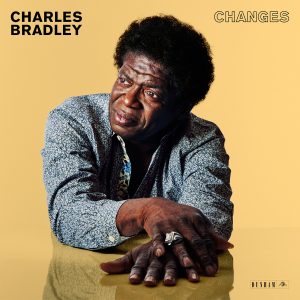
Charles Bradley is the definition of a late bloomer, releasing his first album, No Time For Dreaming, in 2011 at the age of 63. Now, 30 years after he started singing in New York City clubs as a James Brown impersonator under the name of “Black Velvet,” Bradley releases his third album: Changes.
While the past five years have seen the 67-year-old grow into one of the leading characters in the soul revival — alongside the likes of Lee Fields and Sharon Jones — Changes sees Bradley more comfortable and at ease than at any point across his previous two releases. There really isn’t anything new or innovative happening across Changes — as an album it’s very much in line with the rest of Daptone Records’ catalogue: soul and R&B music that you can picture being played during the ‘60s.
Part of this is due to the stellar work of Bradley’s backing band, the Menahan Street Band, who serve as the Daptone’s house band. Featuring powerful bass lines, and guitar chords on the upbeat, coupled with wailing horn work, you can almost picture the band writing the soundtracks to blaxploitation films like Shaft and Super Fly.
The Menahan Street Band lay the foundations, and it’s due to these foundations that Bradley’s unique flourishes can come to the fore. With his ragged voice and occasional James Brown-esque exclamations, Bradley takes the listener on a journey through Changes, from the loss and longing of the album’s title track, to the sermon-like “Change for the World” in which he admonishes humanity for its abuse of the planet, and preaches for the next generation to take more care of it. Particularly interesting is “Things We Do For Love,” as it, unlike the vast majority of Bradley’s work, isn’t as comparable to the works of James Brown or Al Green. Instead it’s more along the lines of a Mungo Jerry song, if Ray Dorset, Mungo Jerry’s lead singer, had a voice that sounded like glass shards mixed with whipped cream instead of his smooth, softer voice.
Whether or not Bradley is adding anything new to the musical world, or simply retreading the musical paths followed by the soul musicians of a bygone era, it’s clear now that there is a growing revival of the soul music community. Instead of Aretha Franklin and Otis Redding, we have Sharon Jones and Lee Fields; instead of a young Isaac Hayes, we have Leon Bridges. And this isn’t a slight on these current artists, they are all talented musicians, but it is clear that their style of music is, at its heart, a repetition of past works. There is no innovation, no building off of these past works, unlike the likes of Michael Jackson, Stevie Wonder, and Mariah Carey, who took soul music and from it, crafted the R&B of the ‘80s.
Bradley’s music is an extended ode to the works of James Brown, Al Green, and Otis Redding. But while it may not be original, or cutting edge, Changes continues to solidify Bradley as a bona fide star.


